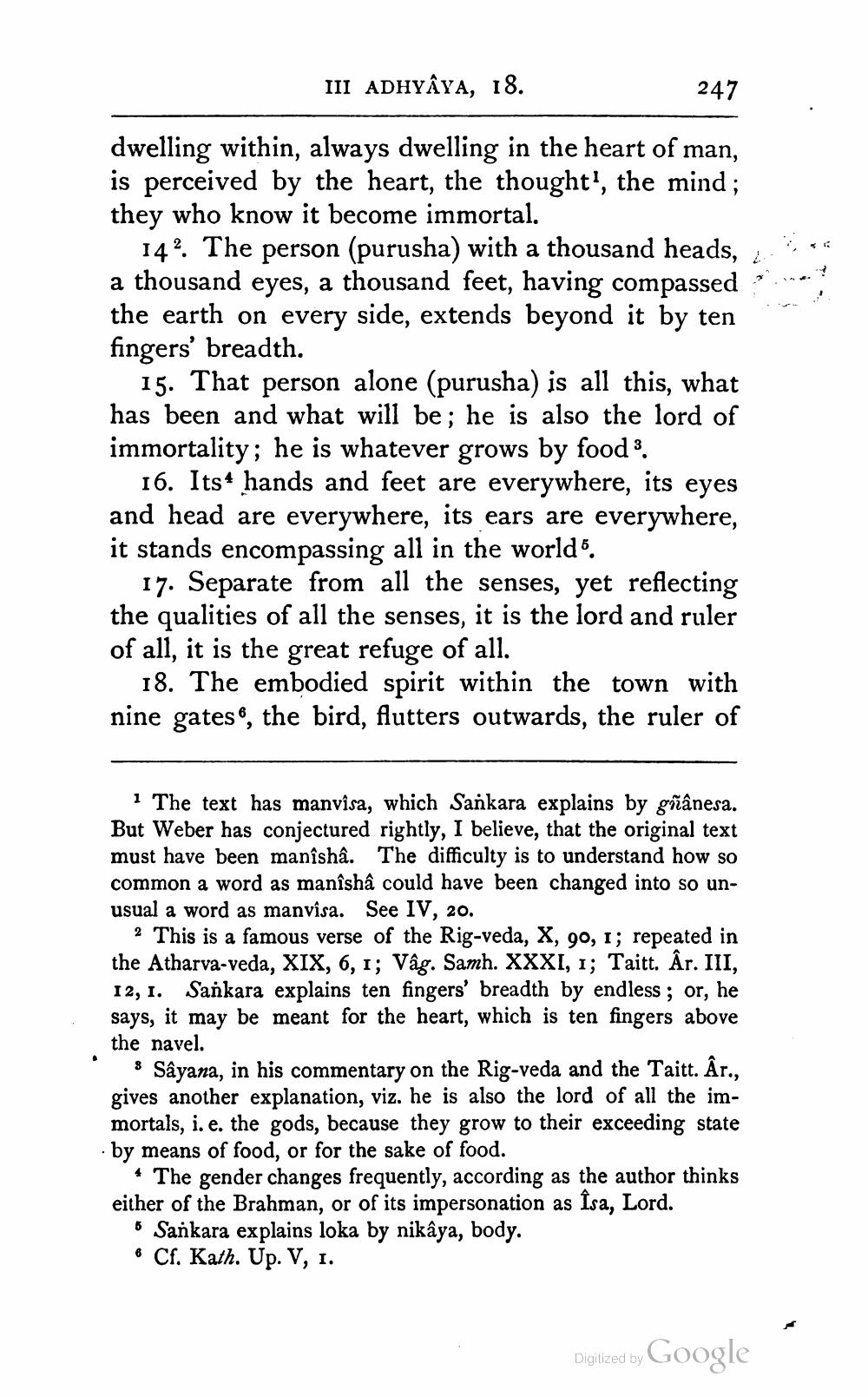________________
III ADHYAYA, 18.
247
;** .
dwelling within, always dwelling in the heart of man, is perceived by the heart, the thought', the mind; they who know it become immortal.
142. The person (purusha) with a thousand heads, a thousand eyes, a thousand feet, having compassed the earth on every side, extends beyond it by ten fingers' breadth.
15. That person alone (purusha) is all this, what has been and what will be; he is also the lord of immortality; he is whatever grows by food .
16. Its hands and feet are everywhere, its eyes and head are everywhere, its ears are everywhere, it stands encompassing all in the world.
17. Separate from all the senses, yet reflecting the qualities of all the senses, it is the lord and ruler of all, it is the great refuge of all.
18. The embodied spirit within the town with nine gates, the bird, flutters outwards, the ruler of
caf11
1 The text has manvîsa, which Sankara explains by gñânesa. But Weber has conjectured rightly, I believe, that the original text must have been manîshâ. The difficulty is to understand how so common a word as manîshâ could have been changed into so unusual a word as manvísa. See IV, 20.
2 This is a famous verse of the Rig-veda, X, 90, 1; repeated in the Atharva-veda, XIX, 6, 1; Vâg. Samh. XXXI, 1; Taitt. Âr. III, 12, 1. Sankara explains ten fingers' breadth by endless; or, he says, it may be meant for the heart, which is ten fingers above the navel.
8 Sâyana, in his commentary on the Rig-veda and the Taitt. Âr., gives another explanation, viz. he is also the lord of all the immortals, i.e. the gods, because they grow to their exceeding state · by means of food, or for the sake of food.
• The gender changes frequently, according as the author thinks either of the Brahman, or of its impersonation as Îsa, Lord.
o Sankara explains loka by nikâya, body. & Cf. Kath. Up. V, 1.
Digitized by Google
Digitized by




